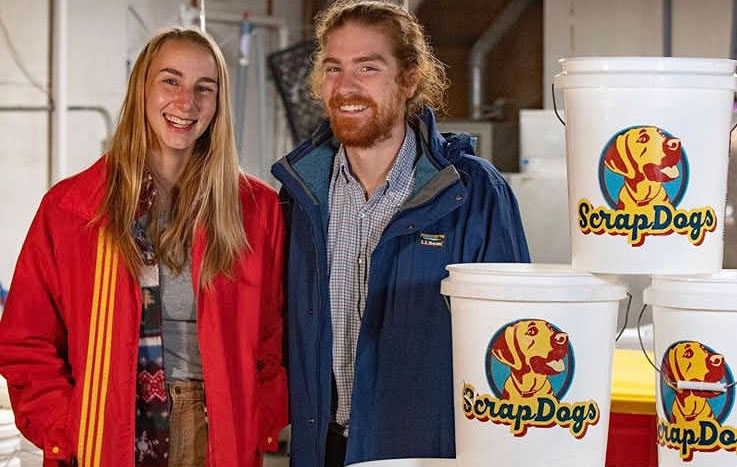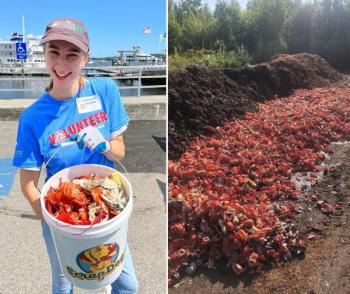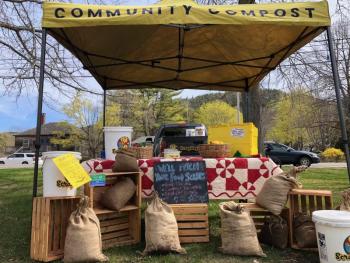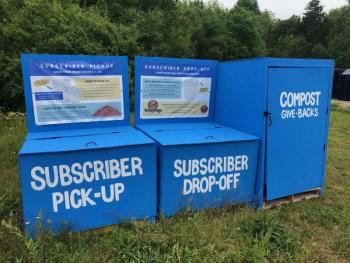MIDCOAST—It’s been five years since Rockport native Davis Saltonstall and his partner Tessa Rosenberry started ScrapDogs Community Compost, an innovative business to collect food waste from subscriber restaurants and Midcoast households, keeping it out of the landfills.
“When we first started, it really felt more like a project than a business,” said Rosenberry.
That was in 2018: they only had between 80 and 100 customers and no facilities.
“We were composting at a farm, and because we didn’t have an office or a facility to use, we were just washing buckets in our backyard,” she said. “I just have this terrible memory of Christmas that year; everyone was inside celebrating and we were outside in the snow washing buckets.”
Since then, they’ve garnered approximately 600 customers in the Midcoast (both residential and commercial) and are in the midst of an expansion to the Waterville and Augusta regions. Their business has also expanded into including commercial businesses, schools, and municipalities. They’ve since gained an office/warehouse in Rockland with a commercial dishwasher and have expanded their operation of open-air compost “windrows” or aerated piles on a plot of land in Washington.
People can choose to have a weekly, bi-weekly, or monthly pick-up service or a drop-off service at the transfer station. If the customer chooses, the finished compost is delivered back to be used in gardens.
Saltonstall, who studied environmental studies and economics, said he’s always been fascinated by garbage studies, which he said is a catchall phrase for “unnecessary or disposable materials” and he’s always been challenged by ways to make systems more efficient in order to reduce waste.
FAST FACTS
- The EPA estimates that in 2019, 66 million tons of wasted food was generated in the food retail, food service, and residential sectors, and most of this waste (about 60%) was sent to landfills.
- Food reaches landfills than any other material in municipal solid waste in the U.S.
- Of this, 40% was from households, 40% was from food
service providers and 20% were from food retailers
“It’s a particular way of looking at systems, how they work, and what the priorities are and we started to see different ways to dispose of household waste,” he said.
Just this year alone, ScrapDogs Community Compost estimates that, due to their services, nearly 260,000 pounds of food waste has been diverted from landfills so far in 2023 with approximately 870,000 pounds diverted since August 2020.
This summer, they collected between 8,000 to 10,000 pounds of discarded lobster shells from The Maine Lobster Festival to be used in their compost.
Contrary to what most people think, the business of composting isn’t as stinky as one would imagine to work around.
“Believe it or not, the smell is not that bad depending on the pile size and microbial activity taking place,” said Rosenberry. “Ideally, good compost piles stay aerated. The more air you get into the compost and mixing it with the proper ratio, it breaks down really quickly.”
“We’re just used to it,” she said laughing. “Maybe a little too much.”
To find out more about Scrapdogs Community Compost visit scrapdogscompost.com/
Kay Stephens can be reached at news@penbaypilot.com




























